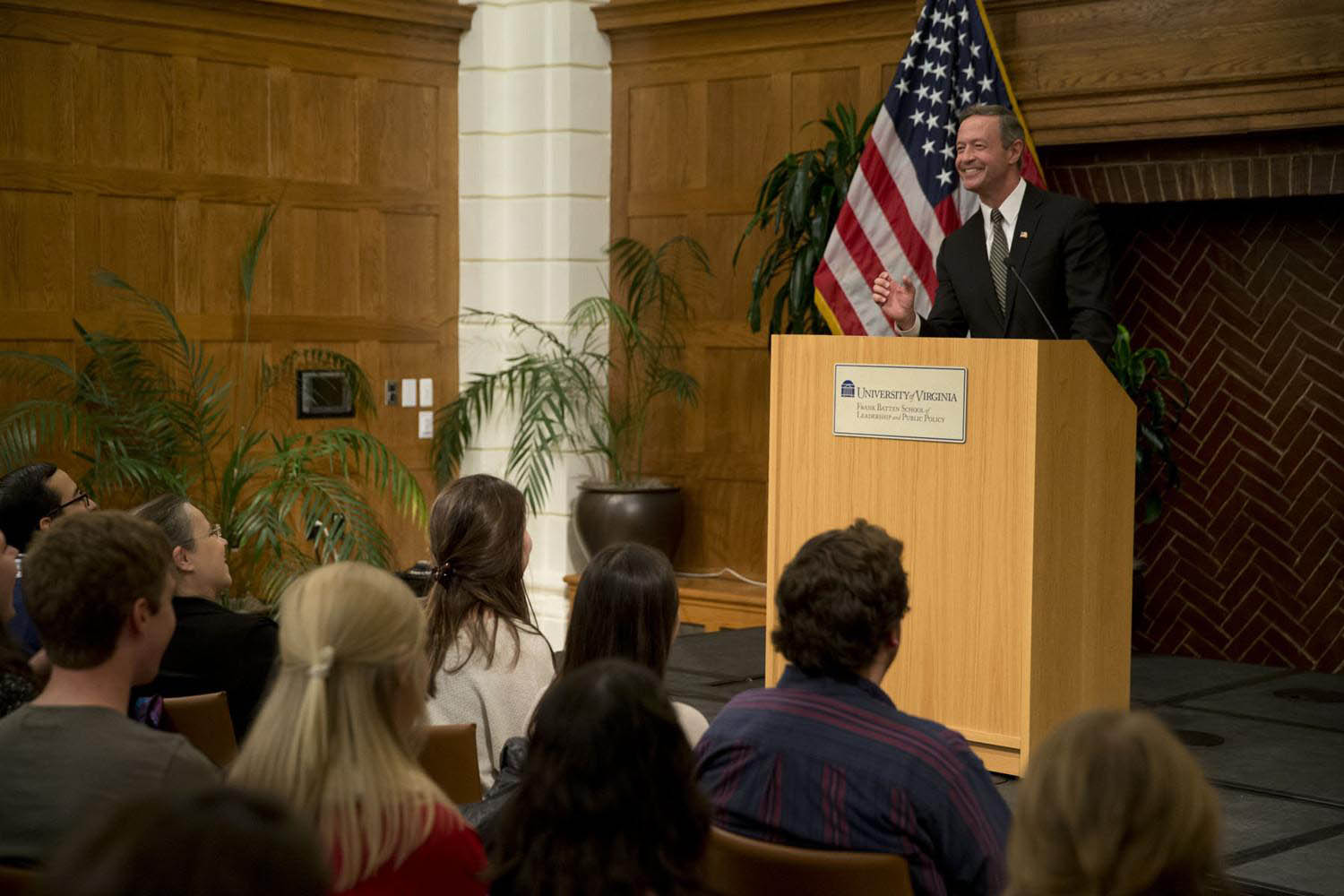Democratic presidential candidate and former Maryland Gov. Martin O’Malley gave the semester keynote speech Tuesday evening for the Future Leaders Forum at the University of Virginia’s Frank Batten School of Leadership and Public Policy.
“While many in the country tend to retreat to their political corners in regard to stances on issues, we at the Batten School recognize that it is only through mutual understanding, through listening and acknowledging the legitimate concerns of those from every political persuasion, that true systemic policy change can occur,” Batten Graduate Council President Terry Mason said.
The council sponsors the Future Leaders Forum series and worked closely with O’Malley’s campaign for several months in order to bring him to Grounds.
Mason said that his organization has invited all the current presidential candidates to speak at Batten and hopes that appearances like O’Malley’s will help expose students to a range of viewpoints.
“It’s chance for us to gain a broader understanding of how what we study at Batten can be engaged with the world around us,” said the Graduate Council’s special events chair, Will Schwieder.
Many students, including Schwieder, were interested to hear O’Malley describe his use of data to help influence public policy. While O’Malley served as mayor of Baltimore, he became known for his successful adoption of the CitiStat system, a performance-based system that identifies areas of underperformance using computerized databases to track targets and results.
“Observing the governor’s career in policy, it is clear that these systems were essential to many of his decisions as mayor of Baltimore,” Mason said.
After implementing CitiStat in Baltimore, O’Malley later used the similar StateStat system as governor. He credits that methodology with helping Maryland earn the U.S. Chamber of Commerce’s No. 1 ranking in innovation and entrepreneurship for three years in a row.
O’Malley said that by implementing data systems in Baltimore and Maryland, both governments were able to find specific areas of waste and uncover areas that were in need of greater funding. In some cases it was as simple as having better tracking of employees’ hours and time off. He also pointed to the use of a uniform data collection and response system as a powerful tool for helping to ensure that every citizen was given an equal voice when notifying the government about issues near them.
“Economics and statistics may serve as the backbone of our students’ policy degrees, but it is invaluable for them to have a dialogue with an accomplished leader like O’Malley, and to hear his firsthand account of the challenges of putting these concepts into practice,” said Jill Rockwell, Batten’s senior assistant dean for student and career services.
In addition to describing his political career, O’Malley spoke about the challenges facing the nation. He encouraged students to use data and work across party lines to help find solutions.
“I am in a search for answers,” he said. “No one candidate and no one party has answers for all the problems we face as a people and as a nation.”
As O’Malley spoke, the crowd of listeners included a mix of students who had come to learn about his public policy work and those who simply wanted to hear what the candidate had to say.
“I really wanted to see how he is in person, because he’s not getting a lot of media attention,” first-year College of Arts & Sciences student Eddie Lin said. “This is a chance for me to hear things that might not be getting covered right now.”
After his speech, O’Malley took questions from the audience. Students asked him to address issues that have been dominating the national news cycle, including gun control, reproductive rights and progress on limiting fossil fuel emissions. In many of his answers, O’Malley reiterated the need to cross partisan boundaries to move forward and the importance of thinking about the future impact of policy decisions, not merely the present.
“The common good is something that we share not only with ourselves, but with the people that come after us,” he said.
Following this lively discussion, O’Malley joined students for a reception in the Batten faculty lounge. The event drew a packed house, and Mason looks forward to engaging more students in similar discussions next semester.
“We plan to continue the Future Leaders Forum in the spring, and while we’ve hosted many leaders at the Batten School, we are certainly hoping to attract more presidential candidates next semester,” Mason said. “It is our goal to expose students to as many public policy leaders as we can. We believe their experience and insight to be a valuable resource for our students as they prepare to enter the policymaking arena.”
Media Contact
Article Information
December 1, 2015
/content/batten-presidential-candidate-omalley-talks-data-and-bipartisan-leadership

